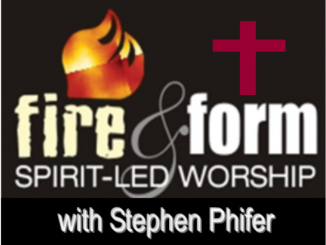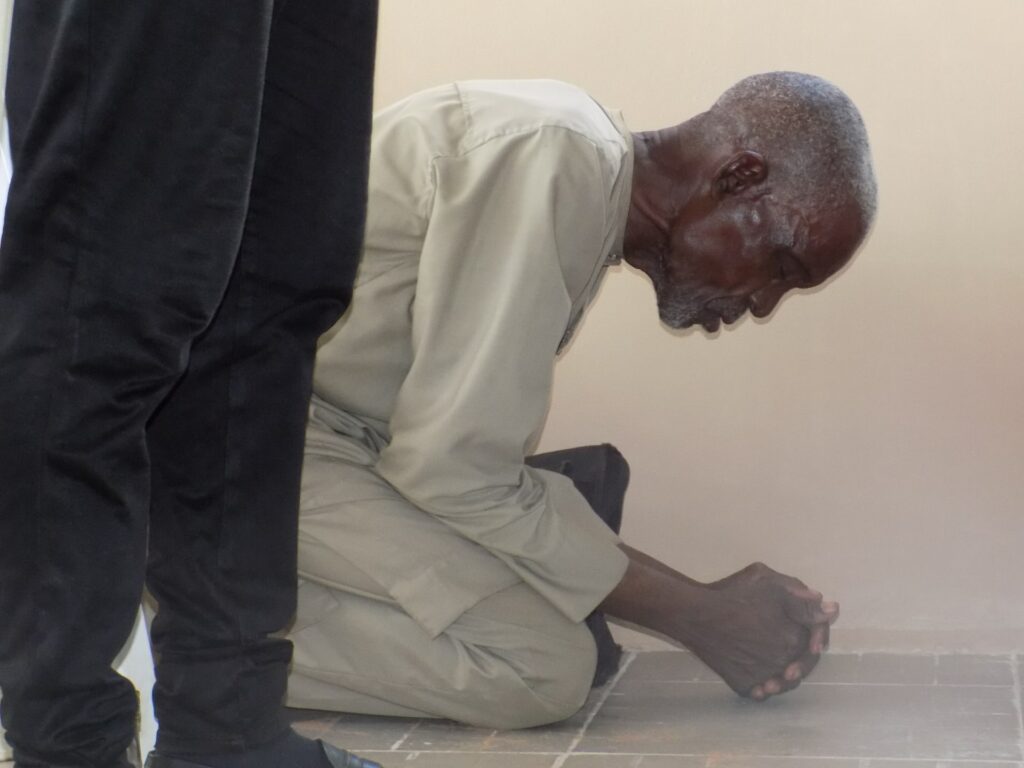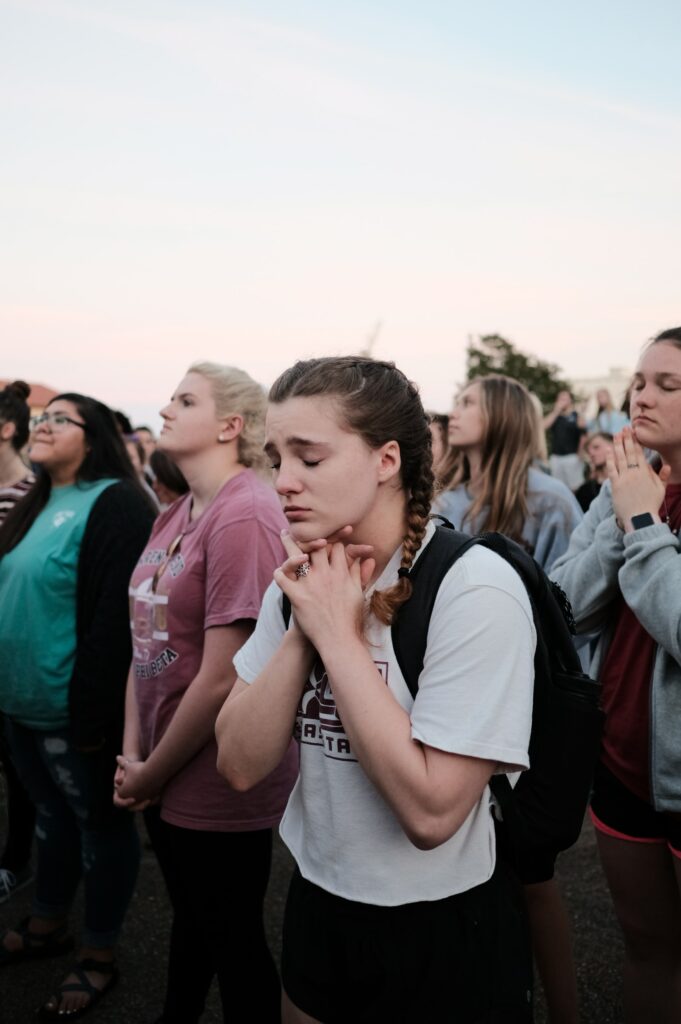Pray Without Ceasing-The Life of Prayer
Rejoice always, pray without ceasing, in everything give thanks; for this is the will of God in Christ Jesus for you. 1 Thessalonians 5:16-18 NKJV
Learning from the Ancients
We all say we need to return to authentic Christianity. We want to search the scriptures and the historical record for the pure faith “that was once for all entrusted to the saints.”[1] Today this healthy trend is spreading throughout the church as the “Ancient-Future” movement espoused by Dr. Robert Webber[2] and Dr. Leonard Sweet[3] and others finds increasing momentum. A major publisher is in the process of gleaning the writings of the church fathers in to a single commentary series, the Ancient Christian Commentary on Scripture, from InterVaristy Press. Does this trend have relevance for Pentecostal leaders in the 21st century? When we realize that the church fathers were Spirit-filled and Spirit-led leaders, their experience and reasoning is certainly relevant to our lives today. The parallels of the ancient world and this postmodern world have been noted and logged:
all entrusted to the saints.”[1] Today this healthy trend is spreading throughout the church as the “Ancient-Future” movement espoused by Dr. Robert Webber[2] and Dr. Leonard Sweet[3] and others finds increasing momentum. A major publisher is in the process of gleaning the writings of the church fathers in to a single commentary series, the Ancient Christian Commentary on Scripture, from InterVaristy Press. Does this trend have relevance for Pentecostal leaders in the 21st century? When we realize that the church fathers were Spirit-filled and Spirit-led leaders, their experience and reasoning is certainly relevant to our lives today. The parallels of the ancient world and this postmodern world have been noted and logged:
- Relativistic, polytheistic, hedonistic,
- hostile toward Christ and His followers,
- image-oriented, non-linear in thought processes and
- ready to embrace mystery and spirituality.
We do well when we learn from the ancients who reached their world for Jesus establishing the church in every continent and people group of Western Civilization.
Worship and Time
There is much to learn from them on the subject of worship. In this column we want to learn about the Life of Prayer. Their understanding of the command to “pray without ceasing” began with an understanding of worship and time that was broader than ours. Old Covenant worship was given within a framework of time. The weekly calendar called for a Sabbath Day that was holy unto the Lord. The yearly calendar called for feasts and festivals of worship. The generational calendar called for a Year of Jubilee every 50th year. In between the feasts and Sabbaths were the days and nights of regular life. Each was framed in prayer. At the Tabernacle and Temple the Scriptures specified morning and evening sacrifices to God. Individuals prayed by the clock as well. [4] Coming, as many did, from this structured spirituality, the church fathers sought to organize prayer by the clock.
Framing the Day in Prayer
 In our harried postmodern world we tend to try to add prayer to a day structured around work. While seven times a day is way beyond the ability of most of us to perform, I wonder if we ought to learn from the ancients the concept of framing the day in prayer. Most Pentecostals have been encouraged to “pray and read your Bibles” every day. We therefore think that getting one prayer time in each day is a great victory. True enough, but perhaps two half-hour times with God, one in the morning and another in the evening, might be more effective than trying to find that “pure delight of a single hour” as in Fanny Crosby’s great hymn. [5] The ancients found morning and evening prayer to be the minimum required for them to be ready to face the persecutions and hardships of serving Jesus in a hostile culture.
In our harried postmodern world we tend to try to add prayer to a day structured around work. While seven times a day is way beyond the ability of most of us to perform, I wonder if we ought to learn from the ancients the concept of framing the day in prayer. Most Pentecostals have been encouraged to “pray and read your Bibles” every day. We therefore think that getting one prayer time in each day is a great victory. True enough, but perhaps two half-hour times with God, one in the morning and another in the evening, might be more effective than trying to find that “pure delight of a single hour” as in Fanny Crosby’s great hymn. [5] The ancients found morning and evening prayer to be the minimum required for them to be ready to face the persecutions and hardships of serving Jesus in a hostile culture.
They also experienced morning and evening prayer as two decidedly different times with God. Morning Prayer was a time of getting ready for the day, of reciting scriptures that gave one courage and perspective, and of petitioning God for His blessings and protection as one worked and witnessed through the day. Evening prayer was a more reflective time, looking back on the day, processing its events, and learning from its experiences. Scriptures of peace and comfort were recited as the darkness of night came on. The long dark night was a much more frightening thing for the ancients than for us in our electric world.
I have found this structure and these differences to be most effective and meaningful in my own life. I have compiled a prayer book called The Book of Private Worship that provides a morning and evening service of personal prayer. [6]
Going from a place of morning prayer, we can face the day in optimism and faith. Our work itself can become a form of prayer. To me, several passages from Paul’s letter to the Colossians form what I call the Colossians Credo:
And whatever you do in word or deed, do all in the name of the Lord Jesus, giving thanks to God the Father through Him And whatever you do, do it heartily, as to the Lord and not to men, knowing that from the Lord you will receive the reward of the inheritance; for you serve the Lord Christ. Col 3: 17,22-24 NKJV
heartily, as to the Lord and not to men, knowing that from the Lord you will receive the reward of the inheritance; for you serve the Lord Christ. Col 3: 17,22-24 NKJV
Following the example of the ancients, we can start end each day in prayer and fill our days with prayerful thoughts and deeds. This is the Life of Prayer. This is how we can pray without ceasing.
[2] Books by Dr. Webber: Ancient-Future Faith, Ancient-Future Evangelism, Ancient-Future Time, Ancient-Future Spirituality, The Younger Evangelicals
[3] Books by Dr. Sweet, SoulTsunami, SoulSalsa, Carpe Manana, Postmodern Pilgrims, AquaChurch
[4] Every morning and evening they present burnt offerings and fragrant incense to the LORD.
2 Chron 13:11NIV; Evening and morning and at noon I will pray, and cry aloud, And He shall hear my voice. Ps 55:17 NKJV; Seven times a day I praise you for your righteous laws. Ps 119:164NIV
[6] If you would like to use it, email me and I’ll be happy to send it to you as a Word document. Contact mer at stphifer@aol.com or through my website www.stevephifer.com.
Dr. Steve Phifer received a Doctorate in Worship Studies from the Robert E. Webber Institute for Worship Studies. He has taught at Valley Forge University and Southeastern Assemblies of God University. For many years he was the Worship Pastor at Word of Life Church in Alexandria, VA.
More of Dr. Phifer’s materials can be found at stevephifer.com.
